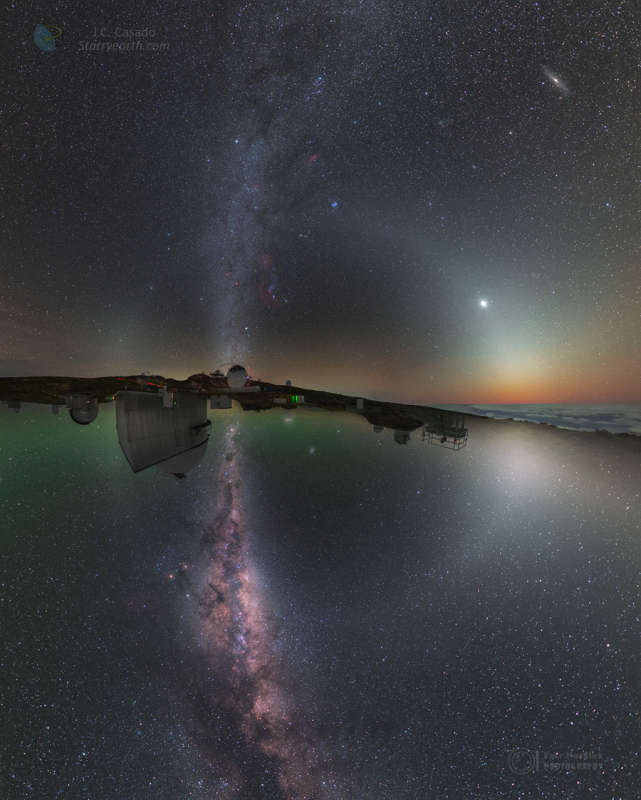Two Hemisphere Night Sky

Explanation:
The Sun is hidden by a horizon that runs across the middle
in this two hemisphere view of
Earth's night sky.
The digitally stitched mosaics were
recorded from corresponding latitudes, one 29 degrees north
and one 29 degrees south of the planet's equator.
On top is the northern view from the
IAC
observatory at La Palma
taken in February 2020.
Below is a well-matched southern scene from the
ESO La Silla Observatory
recorded in April 2016.
In this projection, the Milky Way runs almost vertically above
and below the horizon.
Its dark clouds and and bright nebulae are prominent near the galactic
center in the lower half of the frame.
In the upper half, brilliant Venus is immersed in
zodiacal light.
Sunlight faintly scattered by interplanetary dust,
the zodiacal light traces the
Solar System's
ecliptic plane in a complete circle through the starry sky.
Large telescope domes bulge along the inverted horizon from La Silla
while at La Palma, multi-mirror Magic telescopes stand above center.
Explore this two
hemisphere night sky and you can also find the Andromeda
Galaxy and the Large and Small Magellanic Clouds.
Authors & editors:
Robert Nemiroff
(MTU) &
Jerry Bonnell
(USRA)
NASA Web Site Statements, Warnings,
and Disclaimers
NASA Official: Jay Norris.
Specific
rights apply.
A service of:
LHEA at
NASA /
GSFC
& Michigan Tech. U.

